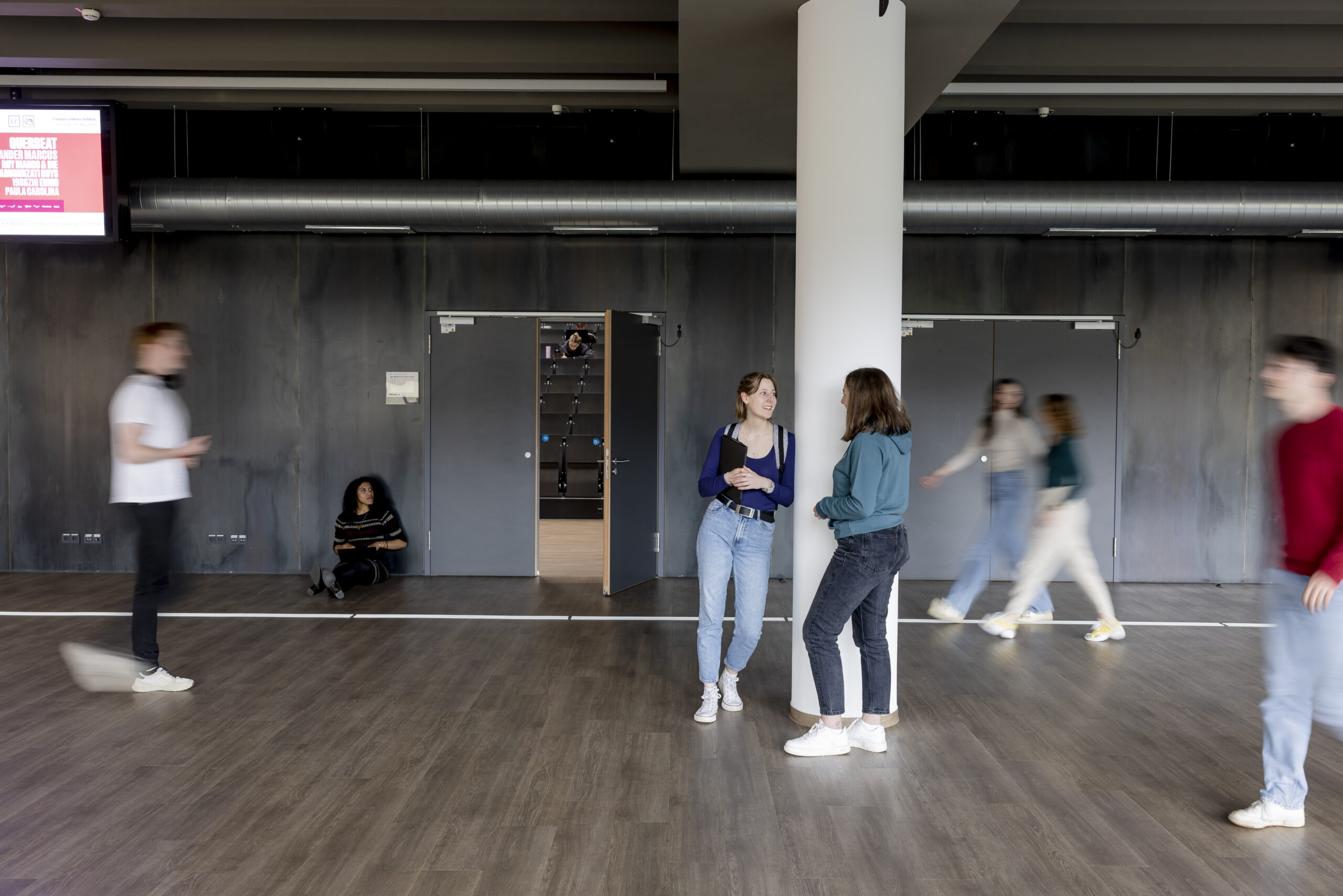
Master
Educational science:
Educational Theory and
cultural practices
Short info about the course of study
| Restricted admission | Standard period of study | Start of studies |
| no | 4 semesters 8 semesters (part-time) | Winter semester |
Authorisation procedure
The program is admission-free, but an application is required.
Application deadline
01 April to 15 September Application possible for the winter semester
completion
Master of Arts
Further information about the degree programme
Language of instruction
German
The course of study
If you are interested in connections between cultural education and educational theory, then you are in the right place in our master's program!
Here you will deal with topics such as education in pop culture, popular music, gamification or art in public space and reflect on mediation opportunities in (non-)school institutions.
You will focus on the importance of cultural practices in educational biographies of children, adolescents and adults. This includes not only the artistic reception and production, but also different forms of everyday design.
The degree program is interdisciplinary and allows you to gain valuable insights into subjects such as art, music, architecture and literature or media studies.

5 reasons for your studies Physiotherapie in Siegen
✓ unique profile within educational studies in Germany
✓ various interdisciplinary references allow you to think outside the box
✓ Choices and design options allow an interest-driven student pension
✓ excellent care ratio
✓ versatile career opportunities
Career prospects
As a graduate of the Master's program, you can work, among other things
- in Science
- to non-university research institutions
- in the field of cultural education (e.g. in youth art schools, cultural centres and clubs, play mobiles or hands-on circuses)
- in different educational institutions (school, social work, adult/further education)
- in cultural institutions (e.g. theatres, museums, libraries)
- for foundations, parties, associations, NGOs or international organisations
- in newspapers and publishing
- in educational departments of companies
- as a self-employed person in the pedagogical or cultural field
This is what Elena Dimter says about her course of study:
"many opportunities for individual interests"
Read more
“Personally, I can recommend the course of study, as it enables personal contact with each other and with the lecturers, which is not necessarily known and makes studying very pleasant. In addition, I think it is great that the compulsory elective area offers a wide range of possibilities in the design of studies, so that seminars and lectures can be put together according to one's individual interests.”
Here's what Julia Edelmann and Julia Wiemer say about their degree program:
„personal study atmosphere„
Read more
“The Master’s programme offers research-oriented training with specialisation opportunities in areas such as adult education, school pedagogy and educational philosophy, allowing students to deepen their individual interests. The interdisciplinary study integrates findings from various disciplines, which leads to a comprehensive understanding of educational processes. Students can make intensive contacts with fellow students and lecturers, which facilitates learning and creates a personal and supportive study atmosphere.”
Admission requirements
1) The academic degree of ‘Bachelor of Arts’ in a course of study ‘Educational Science’, ‘Social Work’ or ‘Pedagogy: Development and Inclusion’. Access is also granted to those who prove a professionally comparable degree with a first professionally qualifying university degree.
2) A completed bachelor's degree in teaching, in which at least one subject from an educational, social or cultural sciences field was studied and the bachelor's thesis in education or educational science was written.
3) The Bachelor's degree qualifying for admission must have been passed with at least a grade of ‘good’ (2.5).
4) A completed master's degree in teaching in which at least one subject from an educational, social or cultural sciences area has been studied.
5) Admission to a Master's degree programme is decided by the examination board of the degree programme.
The current examination regulations always apply.
Study organisation
Examination regulations/course plans/module manuals
Subject examination regulations (FPOs) define the basic structures of a course of study (e.g. entry requirements and content to be studied). For students, the current version of an FPO automatically applies when enrolling in the first semester. This means that even in the event of changes to the FPO during the course of your studies, the version according to which you have registered is valid (provided that this FPO does not expire). The respective course plan represents the recommended exemplary course of study in the individual subjects and is part of an FPO.
Additional regulations and details for each module to be studied can be found in the module manuals (e.g. prerequisites for taking a written examination or information on the content of the modules/events, ...).
Before the start of the lecture period, we recommend that you at least look at the course schedule of your course of study so that you know which modules are planned for the start of your studies:

Advice and contact
Make an appointment now at:
info.studienberatung@zsb.uni-siegen.de
or by phone at: 0271 740-2712
(Mon – Thu: 9 a.m. - 4 p.m. / Fri: 9 a.m. – 12 noon)